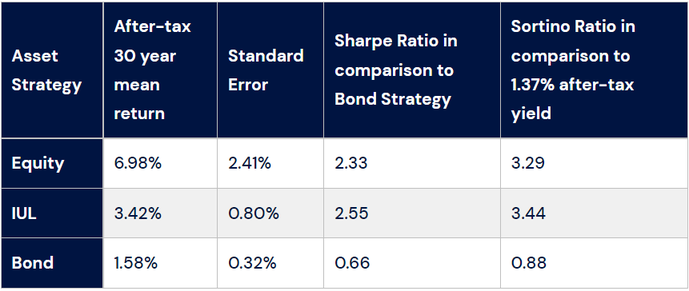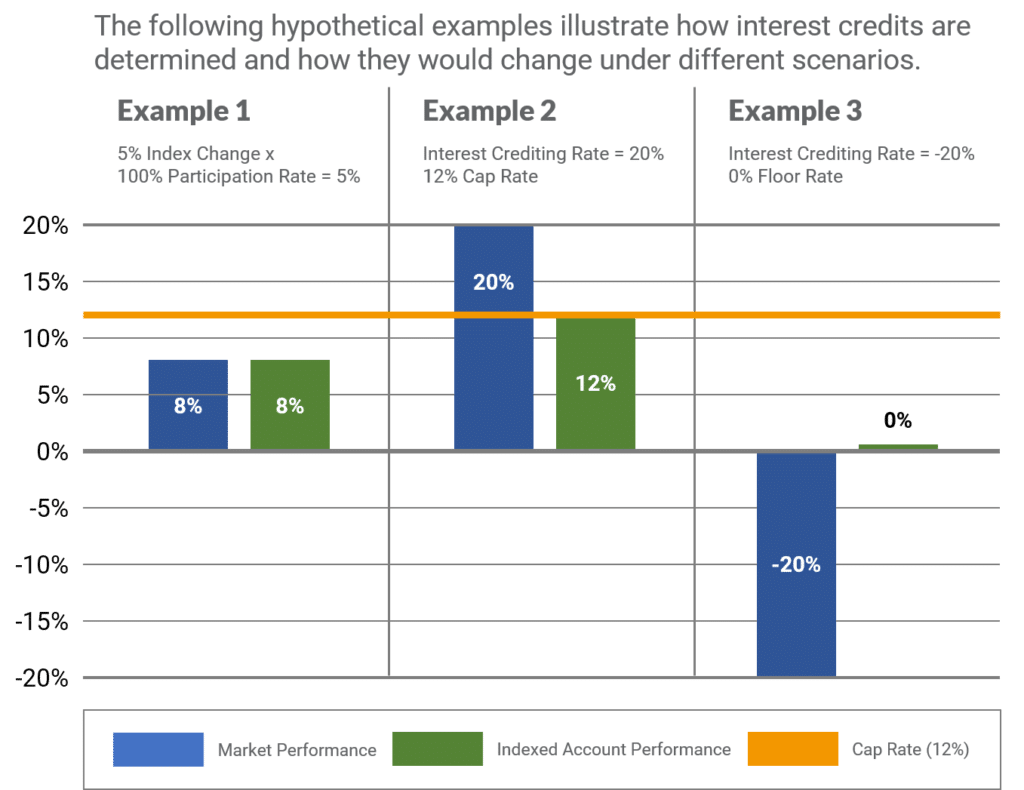All Categories
Featured
Table of Contents
1), commonly in an effort to beat their category standards. This is a straw man debate, and one IUL people love to make. Do they contrast the IUL to something like the Vanguard Total Amount Securities Market Fund Admiral Shares with no load, an expense proportion (EMERGENCY ROOM) of 5 basis points, a turn over proportion of 4.3%, and a remarkable tax-efficient document of circulations? No, they contrast it to some dreadful proactively managed fund with an 8% load, a 2% ER, an 80% turnover ratio, and a terrible document of temporary capital gain circulations.
Mutual funds usually make yearly taxable distributions to fund owners, even when the value of their fund has decreased in worth. Common funds not just need income reporting (and the resulting yearly tax) when the mutual fund is rising in value, however can also enforce revenue tax obligations in a year when the fund has gone down in worth.
You can tax-manage the fund, harvesting losses and gains in order to decrease taxable distributions to the financiers, yet that isn't in some way going to alter the reported return of the fund. The ownership of mutual funds might call for the mutual fund owner to pay approximated taxes (maximum funded indexed universal life).

IULs are simple to position to ensure that, at the owner's death, the beneficiary is not subject to either income or estate tax obligations. The very same tax obligation decrease techniques do not function nearly too with shared funds. There are many, typically pricey, tax obligation catches related to the moment purchasing and selling of mutual fund shares, catches that do not put on indexed life Insurance.
Possibilities aren't really high that you're going to go through the AMT because of your shared fund distributions if you aren't without them. The rest of this one is half-truths at best. For circumstances, while it is true that there is no earnings tax due to your successors when they acquire the profits of your IUL policy, it is likewise real that there is no revenue tax obligation because of your successors when they acquire a common fund in a taxed account from you.
Iul 保险
The federal inheritance tax exemption limit is over $10 Million for a pair, and growing yearly with inflation. It's a non-issue for the large majority of doctors, much less the remainder of America. There are better methods to stay clear of inheritance tax concerns than getting financial investments with low returns. Mutual funds might cause earnings tax of Social Safety and security benefits.

The growth within the IUL is tax-deferred and might be taken as free of tax revenue through lendings. The policy proprietor (vs. the mutual fund supervisor) is in control of his/her reportable income, thus enabling them to lower or perhaps get rid of the taxation of their Social Safety benefits. This is fantastic.
Here's another minimal issue. It's real if you get a mutual fund for claim $10 per share right before the distribution day, and it distributes a $0.50 circulation, you are after that going to owe taxes (most likely 7-10 cents per share) although that you have not yet had any kind of gains.
But ultimately, it's truly concerning the after-tax return, not just how much you pay in taxes. You are mosting likely to pay more in tax obligations by making use of a taxed account than if you get life insurance coverage. But you're additionally probably mosting likely to have more cash after paying those tax obligations. The record-keeping demands for owning shared funds are substantially a lot more complex.
With an IUL, one's records are maintained by the insurer, duplicates of yearly statements are sent by mail to the owner, and distributions (if any type of) are totaled and reported at year end. This one is additionally sort of silly. Of course you ought to maintain your tax obligation records in situation of an audit.
Net Payment Cost Index Life Insurance
Hardly a reason to purchase life insurance. Mutual funds are generally part of a decedent's probated estate.
In enhancement, they undergo the hold-ups and expenditures of probate. The earnings of the IUL plan, on the other hand, is constantly a non-probate circulation that passes outside of probate directly to one's named beneficiaries, and is as a result not subject to one's posthumous financial institutions, undesirable public disclosure, or similar hold-ups and prices.
We covered this one under # 7, but just to summarize, if you have a taxed shared fund account, you need to put it in a revocable count on (or perhaps less complicated, utilize the Transfer on Death classification) to avoid probate. Medicaid disqualification and lifetime income. An IUL can give their owners with a stream of earnings for their whole life time, despite the length of time they live.

This is useful when organizing one's affairs, and converting possessions to earnings before a nursing home confinement. Shared funds can not be transformed in a comparable fashion, and are often thought about countable Medicaid possessions. This is an additional foolish one advocating that poor individuals (you understand, the ones that require Medicaid, a government program for the bad, to spend for their nursing home) ought to utilize IUL instead of mutual funds.
Universal Life Guaranteed Rate
And life insurance policy looks awful when contrasted fairly versus a pension. Second, individuals who have money to buy IUL over and beyond their pension are going to need to be terrible at handling cash in order to ever receive Medicaid to pay for their retirement home prices.
Chronic and terminal ailment motorcyclist. All plans will allow a proprietor's very easy accessibility to cash from their plan, usually waiving any kind of surrender fines when such individuals endure a major illness, require at-home care, or come to be restricted to an assisted living facility. Shared funds do not offer a similar waiver when contingent deferred sales fees still relate to a shared fund account whose owner requires to market some shares to money the costs of such a stay.
No Lapse Universal Life
You obtain to pay more for that benefit (motorcyclist) with an insurance policy. What a large amount! Indexed universal life insurance policy provides death advantages to the beneficiaries of the IUL owners, and neither the proprietor neither the recipient can ever before lose money because of a down market. Mutual funds give no such guarantees or fatality benefits of any type of kind.
I absolutely don't require one after I get to financial independence. Do I want one? On standard, a buyer of life insurance pays for the real price of the life insurance benefit, plus the expenses of the plan, plus the revenues of the insurance policy business.
Insurance Company Index
I'm not completely sure why Mr. Morais included the whole "you can't lose cash" once again here as it was covered rather well in # 1. He simply intended to duplicate the very best selling factor for these things I suppose. Once again, you do not lose small dollars, however you can lose actual bucks, in addition to face major possibility cost because of reduced returns.

An indexed universal life insurance policy plan proprietor might exchange their policy for an entirely different plan without triggering earnings tax obligations. A shared fund owner can not relocate funds from one common fund company to another without selling his shares at the previous (hence causing a taxable occasion), and buying new shares at the latter, often subject to sales charges at both.
While it holds true that you can exchange one insurance coverage for one more, the reason that individuals do this is that the initial one is such a dreadful plan that also after buying a new one and experiencing the early, unfavorable return years, you'll still come out in advance. If they were offered the right plan the first time, they should not have any kind of wish to ever trade it and experience the early, negative return years again.
Latest Posts
Indexed Universal Life Leads
Universal Life Insurance For Retirement Income
Universal Life Interest Rates